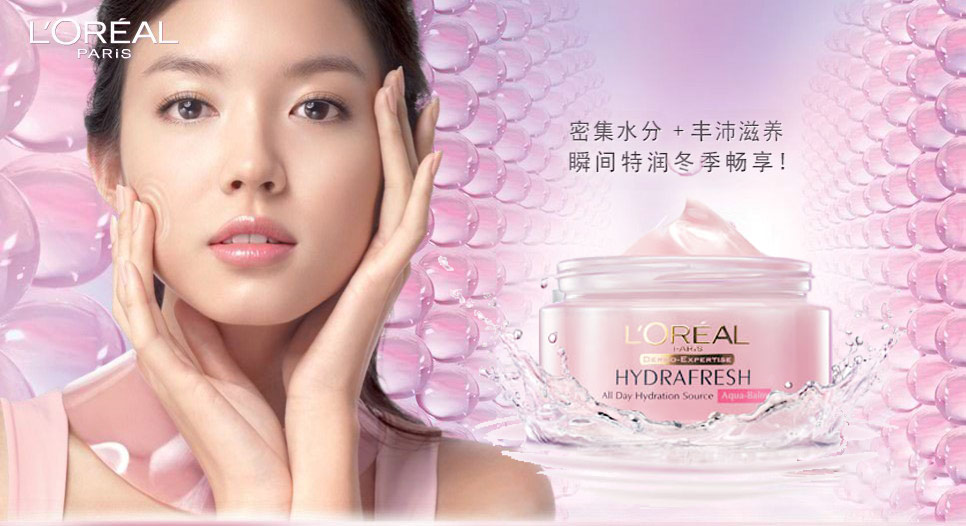What you need to know to sell cosmetics in China, in this video.
The Chinese market is a gold mine when it comes to cosmetics. It’s the second biggest market in the world with €23 billion in size. However only a few firm knows how to lead it. In the meantime, the e-business in China is growing really fast. It’s a 26% growth last year and €203 billion. It is particularly due to countryside towns that are developing faster than Beijing or Shanghai. In fact, in those cities, real stores are a bit more difficult to launch especially for small business. However, it’s there that half of the e-commerce sales are done with only one online store, you can already contact a huge amount of potential customers.
Launching a New Cosmetic Brand in China
Breaking into the Chinese cosmetics market is like embarking on an epic journey through a land of immense opportunity and fierce competition. It’s a vibrant and bustling marketplace, a mingling of ancient beauty traditions with the pulsating beat of modern consumerism. For a new cosmetic brand, this journey is not just about selling products; it’s about weaving your brand into the rich tapestry of Chinese culture and consumer preferences. With the right strategy, you can turn your brand into the next must-have item in every Chinese beauty aficionado’s collection.
Five Strategies for a New Cosmetic Brand to Succeed in China:
-
Cultural adaptation : Tailor your branding and products to resonate with Chinese cultural values and beauty ideals. Understanding local preferences and trends is key. Red, little red book the instagram in China.
-
Master E-Commerce: Leverage China’s massive digital landscape is the key inChina. Platforms like Tmall, JD.com, douyin and WeChat are crucial for reaching a wide audience and facilitating easy purchasing.
-
KOL Collaborations: Partner with Key Opinion Leaders (KOLs) and influencers on platforms like Weibo and Douyin. Their endorsements can significantly boost brand visibility and credibility.
-
Quality and Authenticity: Chinese consumers value high-quality products with authentic brand stories. Emphasize unique ingredients, product safety, and innovative technologies.
-
Adapt and Innovate: Stay flexible and ready to adapt to fast-changing market trends. Innovation in product development and marketing strategies can set your brand apart in this competitive market.
So what do company have to do to be successful on the Chinese cosmetics market ?
1. The price and the discount are vital
Chinese clients buy online for one main reason : the price. They need to have the impression to make a deal. If not, they will just buy at the regular store. Therefore, the shop prices and the on line prices should be different. Moreover, special offers are very important. If you make special offers, it should be highlighted, clear and be blindingly obvious.
For example, L’Oréal and Herborist (two main competitors in the cosmetics sector) have both a very good design and information but Herborist realized only 4% of L’Oréal sales because they don’t make any discount on their products.
2. Clear informations are needed
Chinese customers don’t like to waste their time when buying online. They want to get straight to the point. Browsing all the website to find what they need is a loss of time and it won’t get you orders. Unnecessary message are useful and it is important for e-commerce in China to have a clear design for your on line store so that they can directly see the product you have, their prices and their features.
3. A selection has to be made
Most of the Chinese customers know what they want when they buy cosmetics online. They have either already tried it or checked the online comments and advises posted on blogs and microblogging platforms. Therefore, they would rather be able to select what they want thanks to different categories like the effect or the type of the product, the skin they have, the price and so on
4. Fraud is everywhere
To give an exemple, if you type “L’Oréal, Taobao, official shop”, the first two results are not their real stores. Counterfeiting is really common in China and even more so on the Internet. Brands have to be careful of those fake store with fake goods most of the time.
5. The importance of the e-reputation
To attract Chinese cosmetics users and most importantly keep them, you need to have a good image. You can use different ways to insure that. Those users are really concerned about what they put on their skin so before buying a specific brand, they will look online to search for information before finally buying it. As a consequence, you need to get your products visible on trustworthy media which will give a very good impression. We call it e-PR. Moreover, girls visit, comment and discuss on SNS website about the new products they buy. The experience of certain can influence others’ decision. Thus, social networks are the most influential source of information for Chinese.
Testimonial for Little Red Book: Harnessing the Power of KOCs
“As the founder of a budding skincare line, I was initially overwhelmed by the prospect of breaking into the Chinese market. That’s when I discovered the magic of Little Red Book and the incredible influence of Key Opinion Customers (KOCs). These are real users who, through their authentic experiences and genuine reviews, have the power to sway public opinion and amplify brand presence in ways traditional advertising simply cannot match.
Here are five insights from my journey leveraging KOCs on Little Red Book:
-
Authentic Engagement: KOCs on Little Red Book provided genuine, relatable feedback about our products. Their authenticity fostered trust and credibility among a wider audience.
-
Targeted Reach: By engaging with KOCs who had a following interested in skincare, we could reach our target demographic more effectively than with broad advertising campaigns.
-
User-Generated Content: The content created by KOCs – from unboxing videos to skincare routines featuring our products – served as powerful, organic endorsements.
-
Feedback Loop: The honest reviews from KOCs helped us understand customer preferences and improve our products. This feedback loop was invaluable for our R&D.
-
Brand Loyalty: Collaborations with KOCs led to a community of loyal customers, who not only continued to use our products but also recommended them within their circles.
If you need to be known really quickly, resorting to buzz can be very useful. Information is spreading very very fast on the Chinese Internet and it is important to let your target knows that you exist and propose products that might be interesting for them and this before other brands do.
Thanks to the large coverage an its low cost, the e-commerce is a very good alternative to selling cosmetics in real stores in China. If you are a new business or you want to get some visibility and influence in China, it’s a good way to start.




3 comments
Gift mefor
Please I am looking for where to shop online cream consmetics for wholesale. Please some one should help.
admin
in China ?
Did you read the article 🙂
italia-Mao
I can totally relate to online reputation and the discount! Pricing strategy is essential here, I have myself a little cosmetics brand, and competition is very tough on the Chinese market. Good content.